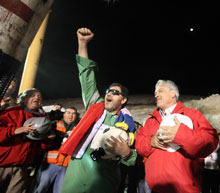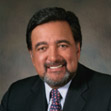Gabino Cué, the new governor of Oaxaca state in Mexico, spoke with AS/COA Online Managing Editor Carin Zissis on location in his transitional offices in the days leading up to his December 1 inauguration. Through an unlikely political alliance that included the conservative National Action Party (PAN) and the left-leaning Party of the Democratic Revolution (PRD), Cué won a historic July 2010 election to become the state’s first opposition governor in more than eight decades. He takes over from Ulises Ruiz of the Institutional Revolutionary Party (PRI), who may be investigated on corruption and human rights abuse charges after stepping down.
Cué, who lost to Ruiz in a 2004 election marred by fraud allegations, talks about how he plans to move his resource-rich but poverty-plagued state beyond 2006 protests that drew international attention as well as how his government plans to unify disparate ideologies of the alliance that backed him during the election. “We built an opposition alliance that had at its core an agenda for a democratic transition that would tackle issues important to all parties,” says Cué. “We’re going to build our government in the same way.” The new governor also touches on topics ranging from national security to investment prospects to the 2012 presidential vote.
- Usted puede leer la entrevista en español aquí.
AS/COA Online: You are replacing Governor Ulises Ruiz, who has the lowest approval rating of all the governors in Mexico. As the first opposition governor of Oaxaca in more than 80 years, what will be the first action your government takes to set Oaxaca on a new path?
Cué: First of all, we are experiencing a historic moment in Oaxaca where, after more than 80 years, the opposition won. There are great expectations when power shifts take place. And what we’ve said is that, at first, we want to do all we can to transition power from an authoritarian regime to a democratic regime. This means we have to dismantle the form in which practices have been carried out, which did little to support democracy. So, an important change will be the ways and style of relating to the electorate, the people, and those we govern.
The next change will be a package of institutional reforms that will allow us to move forward on practical themes: transparency, auditing, strengthening of autonomous agencies, the handling of human rights—all of which are, without a doubt, crucial in a state that has experienced so many violations of individuals’ rights. We have to do this through institutional changes that allow for better collaboration and equilibrium between powers—such as legislative power and judicial power—that permits greater independence and collaboration.



